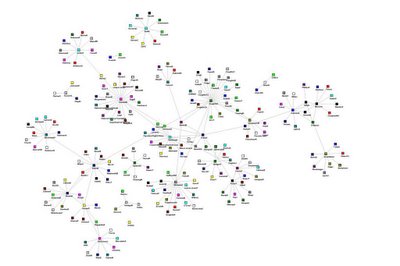As a Director of the Institute for Open Economic Networks, also known as I-Open,
(click here) I help teach and sustain behaviors in regional economic activity guided by Open Source Economic Development. The principal behaviors addressed lead to strengthening brain power, connecting innovation and entrepreneurship networks, building quality, connected places, strengthening civic habits of dialogue and inclusion, and promoting an effective brand through sharing positive stories of activity.
In our process we develop innovation zones in a region through civic forums that focus on story telling of best practices, experiences, building trust, and deepening knowledge of ourselves and our communities. Not only is there much learning and collaborative networking taking place with these forums, there also arise initiatives through alignment of individuals’ interests. Through the initiatives growth occurs through creation of entrepreneurial enterprises but also the creation of supportive environments for new activity.
Most recently, the past week a remarkable meeting took place at Nead Brand Partners
(click here) , one of the supporters of our activity in the midtown area of Cleveland. In the midtown area where I-Open has been building an innovation zone, the initiatives and partners have grown enough that there is a demand to grow the hot spot out from Midtown to the surrounding neighborhoods that are not in “Midtown.” There is now discussion to further involve residents, not just civic leaders and entrepreneurs. People involved with several of the neighborhoods are excited with what has been going on in Midtown and are requesting that the innovation zone be reenvisioned and renamed so as to discourage concerns over "ownership" and to encourage inclusion and participation throughout the region.
There is now a call out to find a "brand" for the innovation zone that is unique to the area as was "Midtown My Town." The I-Open civic forum on August 9, 2006 is now looking to be a kick off of that expansion with participation from many neighborhoods and local development corporations. There will be an envisioning process taking place as took place with the initiation of the Midtown Innovation Zone.
As has been said before, "Strap on your goggles!" The zones are zooming.



